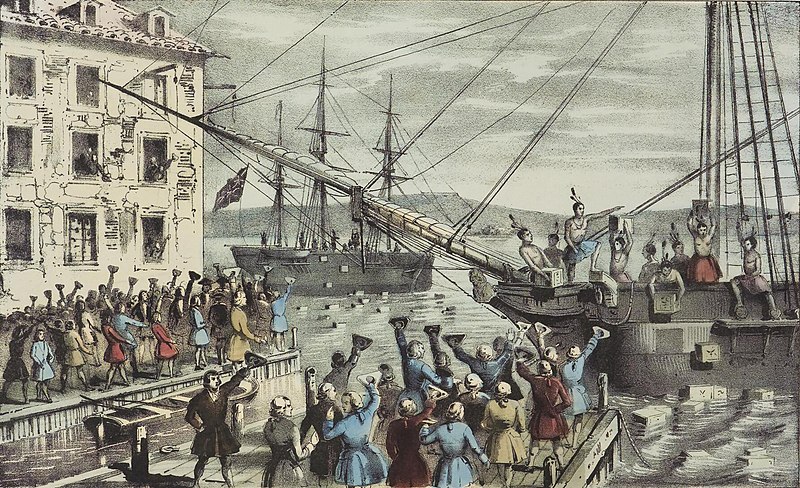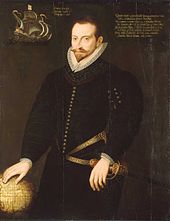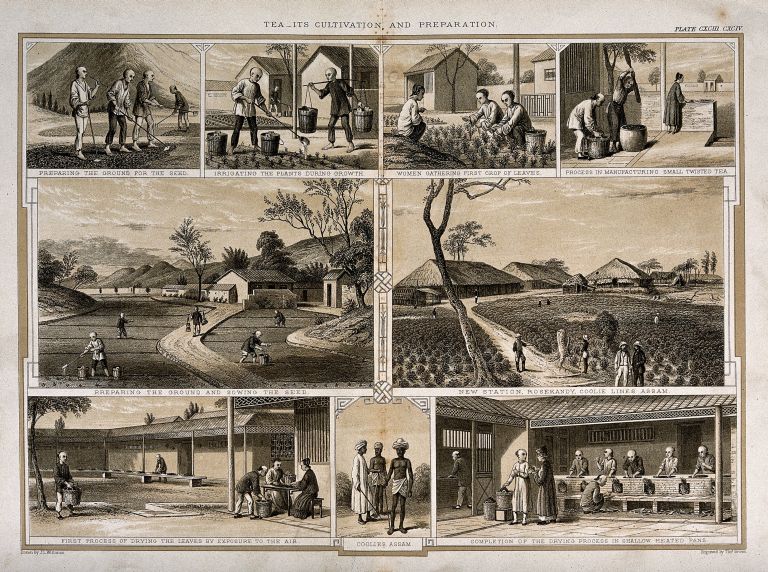Tea and the British Empire
Is there any drink more associated with an elegant British party than tea? I don't think so. I mean an afternoon meal in England is still frequently referred to as "Tea". And especially when we're talking about historical Britain and the regency and Victorian eras, tea is extremely prevalent and iconic!




But what is the real history of tea and the British empire? Tea is a drink that originated in a region in modern-day northeastern Burma and southeastern China. During the Tang dynasty it became increasingly popular and spread to other East Asian countries. It was not until the 16th century that tea spread to Europe and it was not until the 17th century that tea first spread to England. Tea was not a widespread drink in Britain until the 18th century remaining very expensive until the second half of the century.

Twinings opened the first British tea room in 1706
In the 18th century, tea was only grown in China and it was the top Chinese import to Britain, over silk and porcelain. However, British products did not interest the Chinese, so this was a unidirectional trade relationship. Which Britain did not like. They first tried to make up this deficit by manipulating the tea market in the American colonies, but we all know how that worked out for them...

contemporary cartoon of the Boston Tea Party
The East India Company, who had a monopoly on trade in the Far East, soon found a "better" way to make up this trade deficit. British products may not have been popular in China, but opium was. The British East India Company took control of the opium market in Bengal, India and set about increasing production by encouraging farmers to grow more opium and developing new cultivation techniques. The Chinese government realized that the increase in opium flooding their markets was creating problems and so they outlawed opium trading. But the East India Company simply traded their opium to smaller trading houses so that any repercussions for illegally trading opium did not fall on them.

James Lancaster who commanded the first British East India Company voyage
In 1839 the Chinese emperor confiscated roughly 20,000 chests of opium after his protests that the opium trade was creating millions of addicts were ignored. Britain retaliated by an army and small gunboats to start a war with China. The British Empire had superior arms and a superior navy which led to a speedy victory. They forced China to sign a "peace" treaty which had hugely unfavorable terms for China including opening up all ports to trade with Britain ceding the island of Hong Kong to Britain. Even with this military and trade victory, the East India Company continued to work at securing their tea trade routes by establishing tea estates in Assam, India. By this time slavery was banned in the British Empire, however indentured servitude was not. So the East India Company staffed their estates with indentured servants who were not treated much, if at all, better than slaves. Through these means the East India Company was able to become the largest producer of black tea (favored in the British Empire) in the world.

An advertisement for an Assam tea garden from the 19th century
I think the most shocking part of this story for me is that Hong Kong was not given independence from Britain until 1997 and many practices first established with indentured servants, continue on tea farms today. Not that it was ever acceptable to use racist policies or to use essentially slaves to work farms, but I do think it is shocking that the dark remnants and practices of history reverberate even into our lifetimes. I'm 25, and the fact that I have memories older than Hong Kong has had its freedom is shocking to me. I hope that by sharing these stories we can shed light on the awful practices of our past and improve our future. For more information please check out the following article from BBC which delves much more specifically into an Indian perspective and how various factors shaped tea as it is known in India today.


Comments
Post a Comment